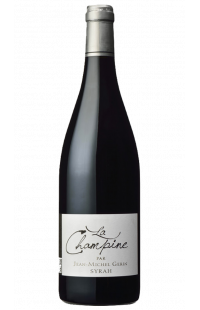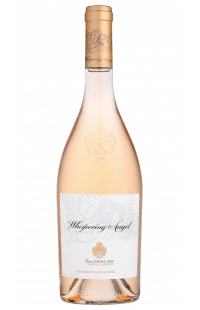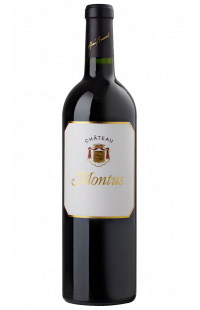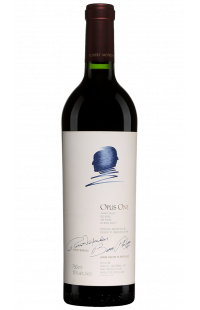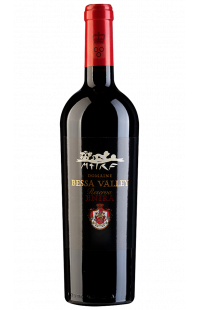- Menu
- All our wines
- Bordeaux
-
Rhône
-
Burgundy
-
Rosés Wines
-
Champagne
- France
-
World
- PRIMEURS
- ORGANIC WINES
Bulgarian wines
There is 1 product.
Bulgarian Wines: Discover the Viticultural Excellence of a Millennial Tradition
Bulgaria, a country often overlooked for its viticulture, possesses a rich and ancient history that dates back more than 3,000 years. Nestled between the Black Sea and the Balkans, this land has been a crossroads of civilizations where vine cultivation flourished since antiquity. It is here that the cult of Dionysus, the Greek god of wine, took root, testifying to the historical importance of viticulture in Bulgaria. Today, Bulgarian wines are experiencing a revival, attracting the attention of wine enthusiasts worldwide. In this article, we will delve into the history, grape varieties, and estates that make Bulgarian wines an essential discovery for oenophiles.
The Millennial History of Viticulture in Bulgaria
The Origins of Viticulture in Thrace
Thrace, a historical region that extended over much of present-day Bulgaria, was already renowned for its vineyards in ancient times. The Thracians were not only fervent vine cultivators but were also among the first to worship Dionysus, the god of wine and festivity. This deep connection with viticulture shaped Thracian culture, even influencing winemaking practices in the rest of ancient Europe.
Greek and Roman Influence
With the expansion of the Greek and Roman empires, viticulture in Thrace benefited from new winemaking techniques and greater dissemination. The Romans, in particular, perfected the art of winemaking, contributing to the reputation of Thracian wines throughout the Empire. These traditions endured through the centuries, despite invasions and political changes, maintaining Bulgaria as an important wine-producing region.
Grape Varieties and Terroirs of Bulgaria
The Main Cultivated Grape Varieties
Bulgaria is rich in a diversity of grape varieties, both indigenous and international. Among the most cultivated are red grape varieties that dominate the viticultural landscape:
- Merlot: Representing 53% of plantings in the Bessa Valley, Merlot thrives in Bulgaria's moderate continental climate, offering round, fruity wines with good aging potential.
- Syrah: With 25% of the vines, Syrah in Bulgaria produces powerful, spicy wines often marked by notes of dark fruits.
- Petit Verdot: Used mainly in blends, this grape variety (12%) brings structure and complexity with its firm tannins and dark berry aromas.
- Cabernet Sauvignon: Known worldwide, Cabernet Sauvignon represents 10% of the vineyards in the Bessa Valley. It produces robust, tannic wines, often aged in oak barrels for more complex aromas.
Terroirs and Climate
Bulgaria's geographical diversity offers a variety of unique terroirs. The Balkan Mountains, the Black Sea, and the Danubian plains create microclimates conducive to viticulture. Soils range from limestone to alluvial deposits, including clay, allowing for a wide diversity of wine styles. The continental climate with hot summers and cold winters favors the cultivation of robust grape varieties capable of producing high-quality wines.
Emblematic Wine Estates
The Bessa Valley: An Exceptional Estate
Among the most renowned wine estates in Bulgaria, the Bessa Valley stands out for its history and quality. Founded in 2001 by Count Stephan von Neipperg, also owner of the prestigious Château Canon La Gaffelière and Clos de L'Oratoire in Bordeaux, this estate spans 205 hectares of vineyards.
The Bessa Valley estate is a perfect example of the potential of Bulgarian wines. With an exceptional terroir and meticulous attention at every stage of production, the wines produced here are both elegant and complex, rivaling some of the world's best crus.
Other Renowned Estates
Besides the Bessa Valley, Bulgaria is home to several other wine estates worth discovering:
- Domaine Boyar: One of the country's largest wine producers, offering a wide range of accessible and quality wines.
- Mavrud Estate: Famous for producing wines from the indigenous Mavrud grape variety, known for its rich and tannic wines.
- Vinex Slavyantsi Estate: Specializing in white and rosé wines, this estate combines tradition and innovation to offer unique wines.
The Renaissance of Bulgarian Wines on the International Scene
A Strong Comeback in International Markets
After a period of decline during the communist era, when wine production was mainly oriented towards high volumes rather than quality, Bulgarian viticulture is experiencing an impressive revival. Today, Bulgarian producers focus on quality, using modern winemaking techniques and valuing local grape varieties. This revival has allowed Bulgarian wines to regain a place in international markets, with growing recognition in wine competitions and reviews.
Bulgarian Wines to Absolutely Taste
Among the Bulgarian wines that stand out, some crus have become must-haves for enthusiasts:
- Enira: A blend of Merlot, Syrah, Petit Verdot, and Cabernet Sauvignon produced by the Bessa Valley estate, renowned for its balance and depth.
- Mavrud Reserve: A powerful and structured red wine, perfect for lovers of full-bodied wines.
- Chardonnay Thracian Lowlands: A fresh and mineral white wine, ideal for accompanying seafood or light dishes.
Challenges and Opportunities of Viticulture in Bulgaria
Climatic and Economic Challenges
Like any wine region, Bulgaria faces climatic challenges, such as the risk of spring frosts or drought periods in summer. Moreover, Bulgarian viticulture must adapt to a globalized market where competition is fierce. However, these challenges are also opportunities for Bulgarian winemakers to stand out by emphasizing the quality and authenticity of their wines.
Initiatives to Promote Bulgarian Wines
The Bulgarian government, in collaboration with wine producers, has launched several initiatives to promote Bulgarian wines abroad. Marketing campaigns, participation in international wine fairs, and efforts to obtain appellations of controlled origin (AOC) are part of the strategies employed to increase the notoriety of Bulgarian wines.
The Future of Bulgarian Wines
Towards Global Recognition
The future of Bulgarian wines looks promising, with growing recognition on the international scene. Young Bulgarian winemakers bring new energy and an innovative approach to viticulture while respecting centuries-old traditions. This combination of innovation and respect for the terroir is key for Bulgaria to become an essential reference in the wine world.
New Generations of Winemakers
The new generations of Bulgarian winemakers are both passionate and trained in modern winemaking techniques. Many have studied abroad and return to Bulgaria with a vision of quality and the potential of their terroir. Their goal is clear: to produce wines that rival the world's best crus while preserving the unique identity of Bulgarian wines.
Bulgarian Wines: A Treasure to Discover
Bulgarian wines represent a treasure still largely unexplored by many wine lovers. Their rich history, unique grape varieties, and the passion of Bulgarian winemakers make them an increasingly sought-after wine destination. Whether you are an experienced wine enthusiast or a curious novice, Bulgarian wines promise you an unforgettable tasting experience.
FAQ
What are the most common red grape varieties in Bulgaria? The most common red grape varieties in Bulgaria include Merlot, Syrah, Petit Verdot, and Cabernet Sauvignon, with a notable presence of the indigenous Mavrud grape.
What makes the Bessa Valley estate unique? The Bessa Valley estate is unique for its exceptional terroir, rich history, and the involvement of Stephan von Neipperg, a renowned Bordeaux winemaker. It produces high-quality wines that are internationally recognized.
Does Bulgaria also produce white wines? Yes, Bulgaria also produces white wines, notably from grape varieties like Chardonnay, Sauvignon Blanc, and the indigenous Dimyat grape.
Why are Bulgarian wines becoming more popular? Bulgarian wines are gaining popularity due to their excellent quality-price ratio, diversity of grape varieties and styles, and growing quality thanks to modern winemaking techniques.
What are the best food pairings for Bulgarian wines? Bulgarian red wines, such as those based on Mavrud or Merlot, pair well with richly flavored dishes like grilled meats, stews, and aged cheeses. Bulgarian white wines are perfect with seafood, fresh salads, and light dishes.
Where can you buy Bulgarian wines in France? Bulgarian wines are increasingly available in France, notably in specialized shops, online wine retailers, and during fairs dedicated to world wines.
Conclusion
Bulgaria, with its millennial wine heritage and quality estates like the Bessa Valley, offers a unique experience for wine lovers. Bulgarian wines, still little known, are gems that deserve to be discovered. Whether you are looking for new grape varieties, unexplored terroirs, or simply an excellent quality-price ratio, Bulgarian wines have everything to please.


